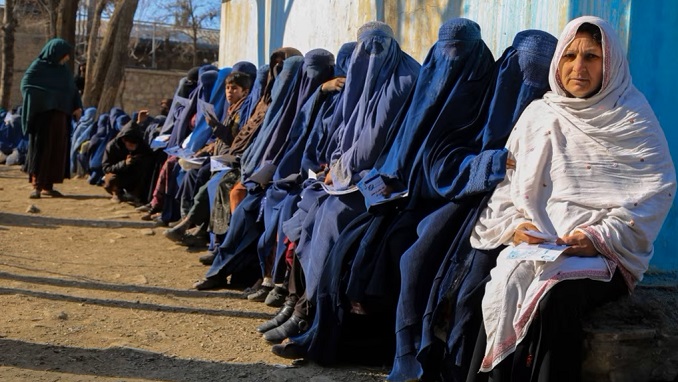Taliban crackdown on women’s rights is likely to lead to a significant drop in aid and development funding in the country, the UN envoy in Afghanistan Roza Otunbaeva warned on March 8.
In order to deliver help in Afghanistan in 2023, the United Nations has made its single-largest country aid appeal ever, asking for $4.6 billion.
Two-thirds of the population – or about 28 million people – in Afghanistan need that help to survive but the Taliban’s bans on women attending high school and university, visiting parks, and working for aid groups have put at risk the assistance.
Otunbaeva, a Kyrgyz diplomat and politician who briefly served as the President of Kyrgyzstan from 2010 to 2011, warned that the Taliban administration’s crackdown on women’s rights in the country in which women fear being cut from public life as much as violent death will definitely have a negative impact.
The UN envoy in Afghanistan told the UN Security Council that Afghan women are also not allowed to leave the home without a male relative and must cover their faces as ordered by the Taliban administration.
Otunbayeva warned that if women were not allowed to work, the funding for Afghanistan is likely to drop which means that the amount of US dollar cash shipments required to support that assistance will also decline.
The bans imposed by Taliban authorities have also halted discussions about providing Afghanistan with more development-style help for things like small infrastructure projects or policies to combat the effects of climate change.
US State Department spokesperson Ned Price said that the United States, which was the largest donor to the 2022 UN aid plan in Afghanistan with more than $1 billion, will consult closely with the UN after analyzing the implications of the bans on aid deliveries.
Washington, as Price explains, wants to make sure the Taliban are made well aware that they can’t fail to fulfill the commitments that they’ve made to Afghani people and expect not to face consequences from the international community.



